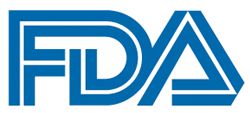Fifth Biosimilar for Trastuzumab Approved by FDA
ABP 980, a trastuzumab biosimilar, has been approved by the FDA for the treatment of patients with HER2-overexpressing breast cancer as well as HER2-overexpressing metastatic gastric or gastroesophageal junction adenocarcinoma, marking the fifth approval by the agency for a trastuzumab biosimilar.

ABP 980 (Kanjinti; trastuzumab-anns), a trastuzumab (Herceptin) biosimilar, has been approved by the FDA for the treatment of patients with HER2-overexpressing breast cancer as well as HER2-overexpressing metastatic gastric or gastroesophageal junction adenocarcinoma, marking the fifth approval by the agency for a trastuzumab biosimilar.1
Results of the phase III LILAC trial, which were presented at the 2018 ASCO Annual Meeting, showed that ABP 980 demonstrated equivalent pathologic complete response (pCR) rates and similar safety findings to that of reference trastuzumab, based on central laboratory evaluation in patients with HER2-positive early breast cancer. There were no clinically meaningful differences between the 2 products.2
In May 2019, the FDA rejected the biologics license application that Amgen, the developer of the biosimilar, and its partner Allergan, submitted to the agency for the biosimilar in July 2017. The European Commission approved ABP 980 for this indication in 2018.
In LILAC, which was conducted at 97 centers in 20 countries, the coprimary endpoints were risk difference (RD) and risk ratio (RR) of pCR in breast tissue and axillary lymph nodes of tumor samples based on local laboratory evaluation. The criteria for clinical similarity were met if the 2-sided 90% CIs for RD and RR were within the bioequivalence margin of -13% to 13% for RD and 0.759 to 1.318 for RR.
In results previously presented at the 2017 ESMO Congress, according to local review, 48.0% of patients in the ABP 980 arm and 40.5% in trastuzumab arm achieved pCR. Risk difference of pCR was 7.3% (90% CI, 1.2-13.4) and RR of pCR was 1.19 (90% CI, 1.033-1.366), with the upper bound confidence interval slightly exceeding the equivalence margin.3
Based on central independent review, the RD of pCR was 5.8% (90% CI, -0.5 to 12.0) and RR of pCR was 1.14 (90% CI, 0.993-1.312), which fell within the equivalence margin.
The incidence of any-grade adverse events (AEs) was 80.2% with BP 980 and 79.5% with trastuzumab, and the rates of grade ≥3 AEs were 14.8% vs. 14.1%, respectively. Rates of arthralgia (17.3% vs. 15.2%), asthenia (14.8% vs. 16.3%), neutropenia (14.6% vs. 12.5%), peripheral neuropathy (13.7% vs. 11.9%), and anemia (11.0% vs. 10.2%) were similar between the two arms.
In March, the European Medicines Agency’s Committee for Medicinal Products for Human Use issued a positive opinion for ABP 980 to treat patients with HER2-positive metastatic breast cancer, HER2-positive early breast cancer, and HER2-positive metastatic adenocarcinoma of the stomach or gastroesophageal junction.
References
- Trastuzumab-anns prescribing information. FDA. Published June 13, 2019. https://bit.ly/31yj2SY. Accessed June 13, 2019.
- Kolberg HC, Tomasevic Z, Demetriou G, et al. Efficacy analyses of central laboratory pCR results from the LILAC study comparing the biosimilar ABP 980 and trastuzumab.J Clin Oncol.2018;36 (suppl; abstr 583).
- von Minckwitz G, Ponomarova O, Morales S, et al. Efficacy and safety of biosimilar ABP 980 compared with trastuzumab in HER2-positive early breast cancer. In: Proceedings from the 2017 ESMO Congress; September 8-12, 2017; Madrid, Spain. Abstract 151PD.